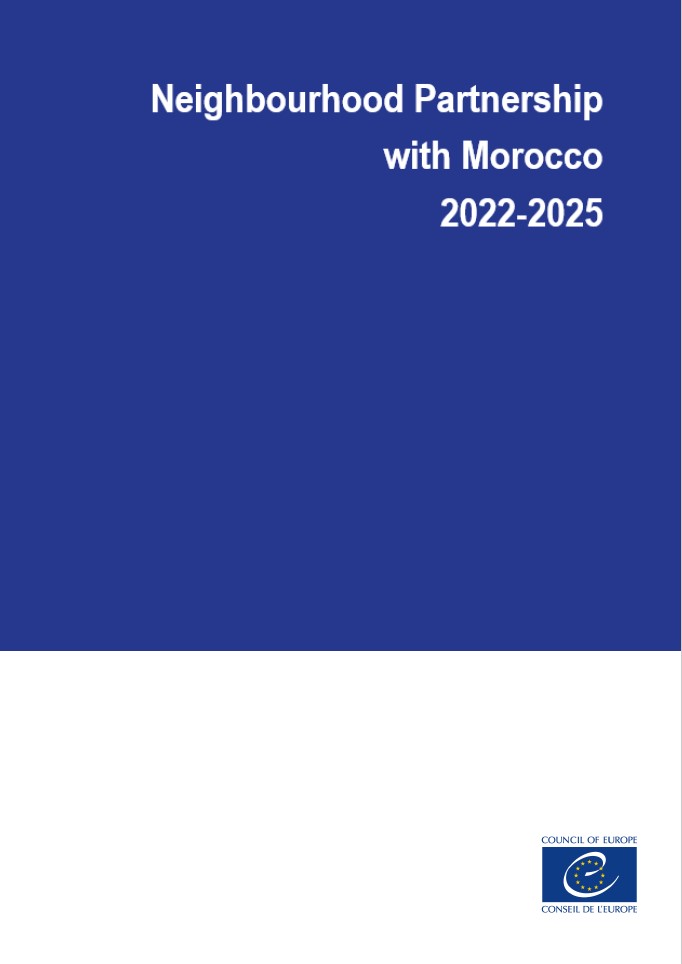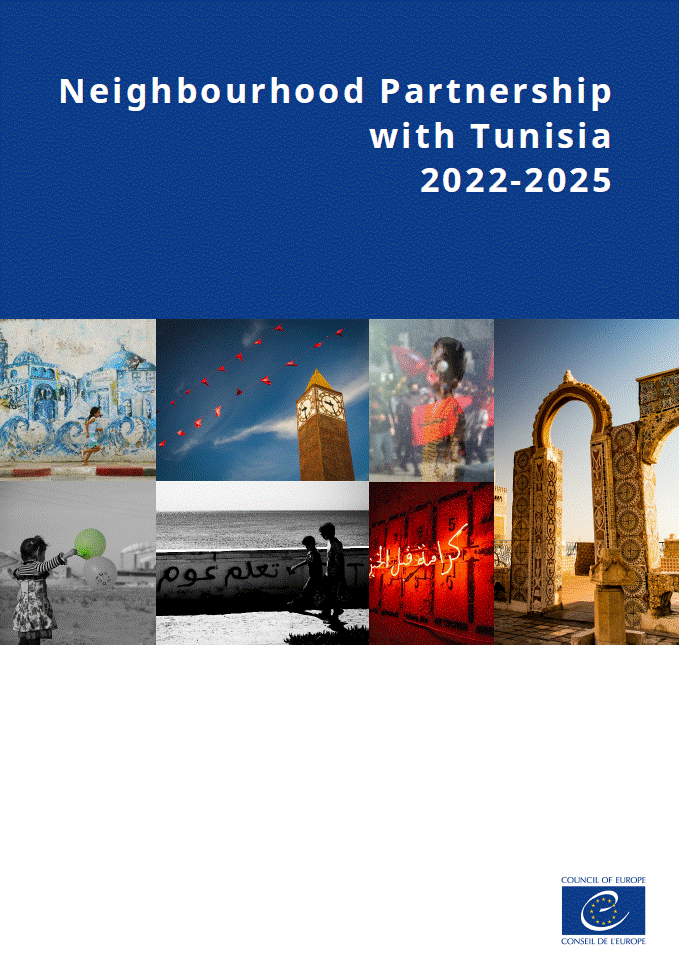Southern Neighbourhood
The Policy for Neighbourhood Regions promotes dialogue and co-operation between the Council of Europe and its Southern Neighbourhood in areas of expertise of the CoE (human rights, democracy and the rule of law) following a demand-driven approach.
Several strategic framework documents agreed with the national authorities of Morocco, Tunisia, Jordan and Palestine * have identified co-operation priorities in the field of human rights, rule of law and democracy since 2012, accompanying the revision and preparation of relevant legislative frameworks, building capacities of a relevant professionals and transferring tools and good practices. Technical co-operation and political dialogue have been progressively reinforced with Morocco and Tunisia, through Neighbourhood Co-operation Documents adopted by the Committee of Ministers in November 2021. The medium-term Strategy of the European Centre for Global Interdependence and Solidarity of the Council of Europe (North-South Centre, NSC) adopted in November 2023, establishes enhanced synergies between the Council of Europe's Neighbourhood Policy with the Southern Mediterranean and the NSC. These ties will be instrumental to further associate civil society and ensure ownership of democratic reforms by young people in the Southern Mediterranean.
The results achieved speak for themselves:
- enlarged common legal space between the region and Europe, through several accessions of Southern Mediterranean to Council of Europe Conventions open to non-member States;
- legislation increasingly compliant with European standards in key areas (such as combating violence against women, trafficking in human beings, protection of personal data, justice);
- South-South and North-South networks, including the UniDem Med Campus (University for Democracy), which allows senior civil servants from the region to exchange knowledge and experience on the topic of modernising public administration; or the Šibenik Network of Corruption Prevention Agencies.
Through bilateral and regional joint programmes, the Council of Europe and the European Union have been working closely with beneficiaries from region since 2012. The South Programme, co-financed by the European Union and the Council of Europe and implemented by the latter, provides the main regional framework for co-operation completed by bilateral targeted actions. It has allowed the Council of Europe to work with Algeria, Egypt, Israel, Jordan, Lebanon, Libya, Morocco, Tunisia and Palestine*. The fifth phase of the programme “Regional Support to Reinforce Human Rights, Rule of Law and Democracy in the Southern Mediterranean” started on 1st September 2022. It builds upon the achievements and success of its first (2012-2014), second (2015-2017), third (2018-2020) and fourth (2020-2022) phases.
The regional joint programme CyberSouth covers the Southern Mediterranean region, with a special focus on Algeria, Jordan, Lebanon, Morocco and Tunisia. It aims at strengthening legislation and the institutional capacities on cybercrime and electronic evidence in the region in line with human rights and rule of law requirements.
In addition to European Union funding, voluntary contributions from several Council of Europe member States (Belgium, Malta, Monaco, Norway, Portugal, Spain, Switzerland etc.), mainly aimed at Morocco and Tunisia, have backed co-operation in the areas such as fighting violence against women and children, promoting freedom of expression and media freedom, or youth.
* This designation shall not be construed as recognition of a State of Palestine and is without prejudice to the individual positions of Council of Europe member States on this issue.




